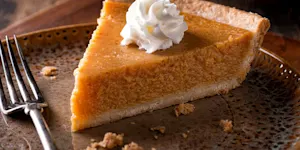What Makes This Word Tick
"Venerable" holds a sense of deep respect, usually given to those with a wealth of experience or wisdom, such as elders or long-standing institutions. When you hear this word, think of something that has stood the test of time, earning admiration for its enduring value.
If Venerable Were a Person…
If "venerable" were a person, they'd be a kindly octogenarian who knows all the neighborhood kids by name, bakes the best cookies on the block, and can tell you stories about the good old days with a twinkle in their eye and a wealth of lessons.
How This Word Has Changed Over Time
Originally tied to religious contexts, "venerable" has broadened over centuries. While it once primarily described saints nearing canonization, today, it's just as likely to refer to a beloved teacher or a historic landmark.
Old Sayings and Proverbs That Use Venerable
Though "venerable" doesn't headline many classic proverbs, its essence thrives in old sayings like "respect your elders," reflecting the word's intrinsic link to wisdom and reverence.
Surprising Facts About Venerable
Did you know "venerable" is not just a word but a formal title in some religious traditions? It can denote a monk or a nun who has made significant contributions and lived a life of exemplary virtue.
Out and About With This Word
On a crisp walk through a historic district, you might pass a "venerable" library or church, steeped in stories and history, quietly demanding respect with their grandeur and age.
Pop Culture Moments Where Venerable Was Used
In pop culture, "venerable" is often used to describe classic film stars or time-honored brands—think of those venerable icons like Audrey Hepburn or Ford Motors.
The Word in Literature
"Venerable" fits snugly into literary works where themes of tradition and respect are central. It's often found in historical novels and tales about generational sagas, echoing the passage of time and the wisdom it brings.
Moments in History with Venerable
Think of the signing of the Magna Carta in 1215—an event embodying the spirit of "venerable" by laying the foundation for centuries of legal tradition. The word's essence can be felt in such pivotal moments.
This Word Around the World
Across cultures, the equivalent of "venerable" might be seen in words like "respectable" in English or "respetable" in Spanish, all tying back to the shared human value of honoring experience and age.
Where Does It Come From?
"Venerable" traces back to the Latin "venerabilis," meaning worthy of respect, evolving through Old French and into Middle English, retaining its air of dignity and honor throughout.
How People Misuse This Word
Sometimes "venerable" gets thrown around to describe anything old, rather than something deserving respect due to age and merit. Remember, it’s not just about being old—it's about being esteemed.
Words It’s Often Confused With
Venerable vs. Vulnerable: Despite similar sounds, they couldn't be more different. "Venerable" is all about respect, while "vulnerable" means exposed to harm.
Respectable vs. Venerable: Both imply admiration, but "respectable" often lacks the depth and history tied to "venerable."
Elderly vs. Venerable: "Elderly" refers simply to age, without the requisite admiration that "venerable" commands.
Additional Synonyms and Antonyms
Synonyms include esteemed, revered, and stately. Antonyms might be unremarkable or modern.
Want to Try It Out in a Sentence?
"Despite its dilapidated exterior, the venerable old theater remained a beloved icon for generations of theatergoers."
















